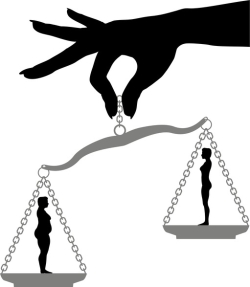 From Your Health Journal…..”A very interesting and well written I wanted to promote from the Sydney Morning Herald out of Australia written by Matt Wade entitled Obesity costs drag down national good. We have discussed here so many times how upset I was while reading an article from a reputable publication which stated that the United States was the ‘fat capital’ of the world. This did not sit well with me. Yes, I agree, there is a problem in the US with obesity, but NOT just limited to the US. I have provided documentation from at least a dozen other countries stating how they have a similar problem. Today’s article is another example, showing how there is a major concern in Australia. The article starts off by stating how the cost of obesity to Australia’s collective well-being has reached $120 billion a year – the equivalent of about 8 per cent of the economy’s annual output. The well-being cost of obesity has risen by nearly $50 billion a year since 2005-06. In that time the number of obese adults has risen from 3.2 million to 5 million, from 20.8 per cent to 28.3 per cent of the population. Mr. Wade does an excellent job pointing out some valuable information in his article. Please support his article by visiting the SMH web site (link provided below) to read the complete article.”
From Your Health Journal…..”A very interesting and well written I wanted to promote from the Sydney Morning Herald out of Australia written by Matt Wade entitled Obesity costs drag down national good. We have discussed here so many times how upset I was while reading an article from a reputable publication which stated that the United States was the ‘fat capital’ of the world. This did not sit well with me. Yes, I agree, there is a problem in the US with obesity, but NOT just limited to the US. I have provided documentation from at least a dozen other countries stating how they have a similar problem. Today’s article is another example, showing how there is a major concern in Australia. The article starts off by stating how the cost of obesity to Australia’s collective well-being has reached $120 billion a year – the equivalent of about 8 per cent of the economy’s annual output. The well-being cost of obesity has risen by nearly $50 billion a year since 2005-06. In that time the number of obese adults has risen from 3.2 million to 5 million, from 20.8 per cent to 28.3 per cent of the population. Mr. Wade does an excellent job pointing out some valuable information in his article. Please support his article by visiting the SMH web site (link provided below) to read the complete article.”
From the article…..
The cost of obesity to Australia’s collective well-being has reached $120 billion a year – the equivalent of about 8 per cent of the economy’s annual output.
The Herald-Lateral Economics Index of Australia’s Well-being – which uses a range of indicators to measure changes in national welfare – calculates a dollar figure on how obesity has an impact on Australia beyond its narrow economic effect.
It shows that the well-being cost of obesity has risen by nearly $50 billion a year since 2005-06. In that time the number of obese adults has risen from 3.2 million to 5 million, from 20.8 per cent to 28.3 per cent of the population. The index estimates that each one percentage point rise in the obesity rate costs about $4 billion a year in national well-being.
Official economic figures only pick up the direct economic effects of obesity, such as absenteeism due to obesity-related illnesses. But obese people feel worse about themselves, on average, because of their weight and the Herald-Lateral Economics index puts a dollar figure on these non-economic – but very significant – effects.
Index author Nicholas Gruen said halving Australia’s obesity rate would be akin to making several major economic reforms.
“The index shows that, if we could halve the current obesity rate, that would generate about the equivalent amount of well-being as generating an additional $60 billion a year of income,” he said.
In the December quarter alone, the well-being loss from obesity was a record $29.4 billion, up from $18.1 billion in the corresponding quarter in 2005.
The negative effects of obesity are growing faster than most other components of the index, including net national income, environmental degradation, inequality, life expectancy and job satisfaction.
To read the complete article…..Click here
